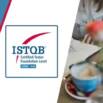
[100% Off] Certified Tester Foundation Level (Ctfl) V4.0 Practice Exams
Up-to-date practice tests with detailed explanations, exam tips, and full coverage of all exam domain
What you’ll learn
- Interpret exam domains
- weightings
- and question styles.
- Identify key strategies for answering scenario-based and multiple-response exam questions.
- Recognize how each exam topic maps to real-world adoption and business use cases.
- Apply exam-taking techniques and timing tips to maximize performance on the official certification.
Requirements
- A strong motivation to pass the exam.
Description
The Certified Tester Foundation Level (CTFL v4.0) credential validates a professional’s foundational knowledge of software testing principles, techniques, and best practices. It is designed for software testers, quality assurance (QA) professionals, developers, business analysts, and anyone involved in testing activities who wants to gain a common understanding of the testing discipline. This certification demonstrates familiarity with essential testing concepts as defined by the International Software Testing Qualifications Board (ISTQB).Key knowledge areas include:
– Fundamental principles of software testing and quality assurance
– The test process, its activities, and the test lifecycle
– Static testing, reviews, and early defect detection
– Test design techniques (black-box, white-box, and experience-based)
– Test management, planning, monitoring, and control
– Risk-based testing and prioritization
– Tool support for testing and test automation concepts
– Communication and collaboration within test teams and stakeholders
By earning the Certified Tester Foundation Level (CTFL v4.0) certification, professionals show they understand the vocabulary, processes, and practices essential for effective software testing. This credential enhances qualifications for roles such as junior tester, QA analyst, developer-in-test, or test coordinator and serves as a prerequisite for higher-level ISTQB certifications. Achieving this certification signals to employers a commitment to quality and a standardized approach to testing, improving both team collaboration and software delivery outcomes.







![AZ-900: Microsoft Azure Fundamentals Practice Tests [2025]](https://couponscorpion.com/wp-content/uploads/thumbs_dir/az-900-microsoft-azure-fundamentals-practice-tests-2025-1-7lcnm9mivtgxmmzr8sca6sxcwvnbyuh26paeq6bzwm2.jpg)
![Practice Test: AWS Cloud Practitioner CLF-C02 [Updated 2025]](https://couponscorpion.com/wp-content/uploads/thumbs_dir/practice-test-aws-cloud-practitioner-clf-c02-updated-2025-7kn70esqga84z2bxxr5vve446vrqt87s1t71chd0jbu.jpg)